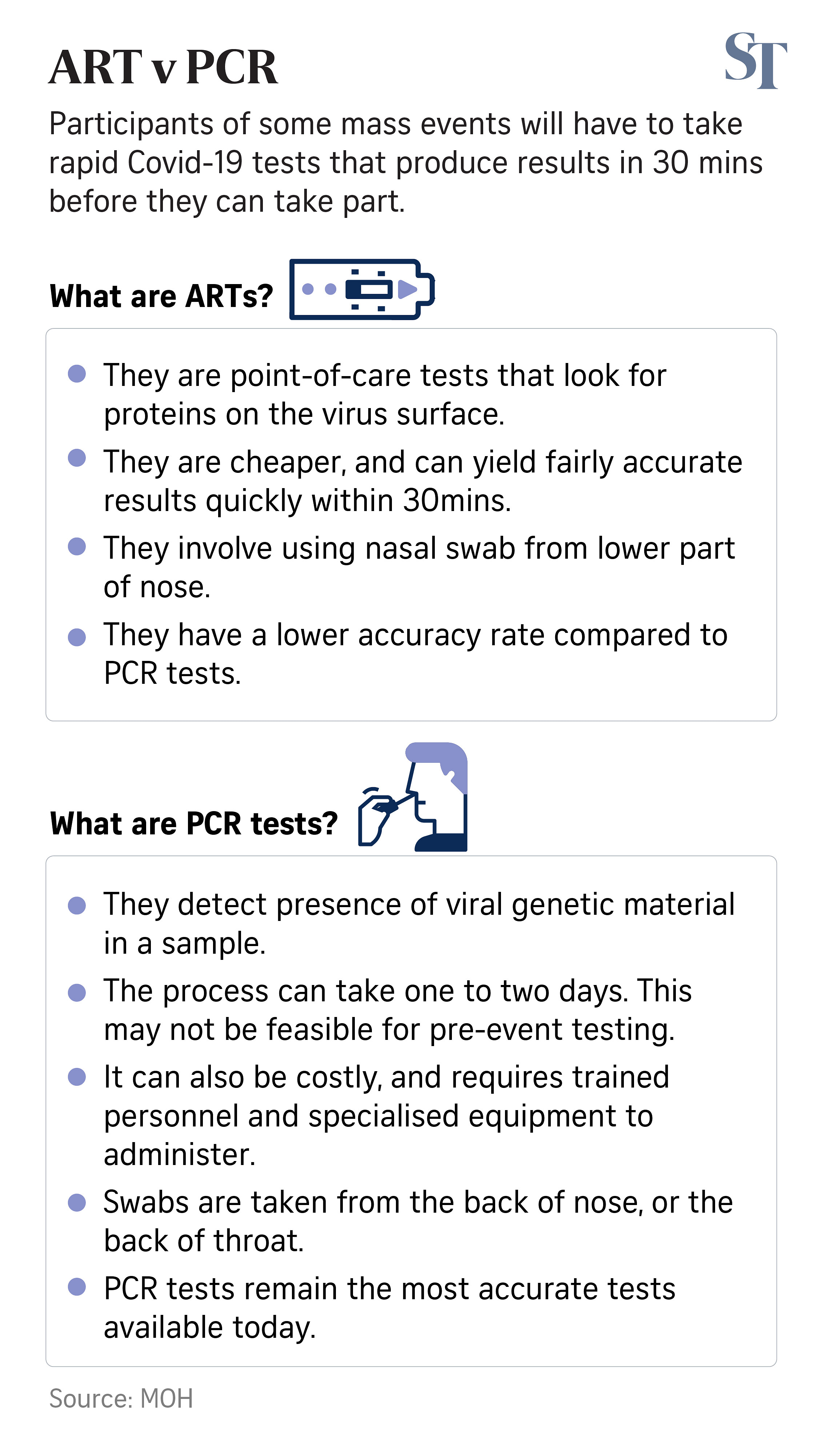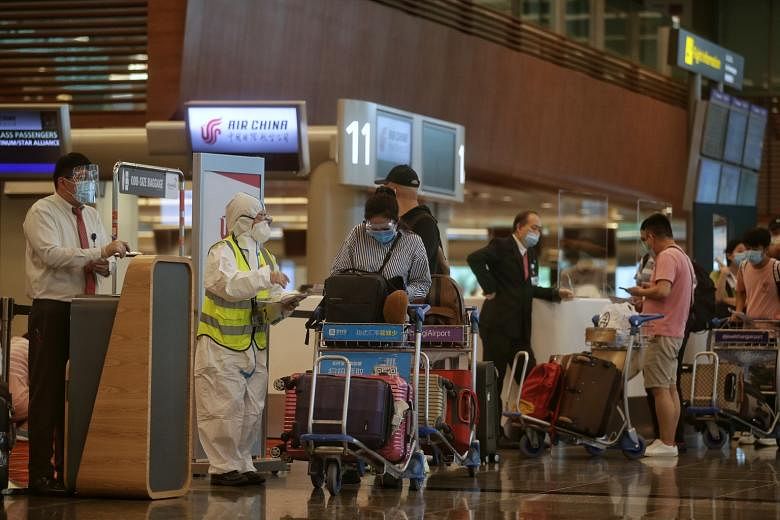Singapore citizens, permanent residents (PRs) and long-term pass holders who had travelled out of Singapore on or after March 27 can tap government subsidies and insurance coverage for treatment should they be found with the Covid-19 virus on their return.
This is in line with the move to progressively reopen Singapore's borders, the Ministry of Health (MOH) said yesterday.
It had previously said those who left Singapore from March 27 would be responsible for their own medical bills and would not be able to access government subsidies or insurance coverage if they should have Covid-19 symptoms within 14 days of their return here.
Exceptions were made for those travelling on permitted arrangements like green lanes, and for students travelling overseas for full-time studies.
MOH also said yesterday that Singaporeans, PRs and long-term pass holders who had gone abroad before March 27 will have their medical bills paid by the Government should they be found with the virus when they return here.
It added that Singapore has to gradually reopen its borders further. "Unlike larger countries which can keep their borders closed, our livelihoods and economic survival depend heavily on Singapore being open to the world and being a key international and travel hub," said the ministry.
"It is therefore not possible for Singapore to keep our borders closed indefinitely."
While travellers from some countries, such as China and New Zealand, can now enter Singapore without spending two weeks in isolation under special arrangements, those from countries deemed to have higher risks of Covid-19 infection will be put in quarantine for 14 days.
MOH said it will look into more frequent testing and other safeguards to let more travellers into Singapore without quarantine.
Education Minister Lawrence Wong, who co-chairs the task force fighting the Covid-19 outbreak, said at a briefing yesterday that a possible way around the quarantine would be to require travellers to take a polymerase chain reaction (PCR) test on arrival, and then undergo antigen tests later on during their time here.
He said that for now, the PCR test will still be the required test for incoming travellers. He had been asked whether the authorities would switch to rapid antigen testing to detect infected travellers.
Such tests can deliver results in 30 minutes, but are less accurate than PCR tests.

MOH said yesterday it will require participants of some mass events to take the antigen test and get a negative result before admission.
Health Minister Gan Kim Yong said at yesterday's briefing that any decision on using antigen tests on travellers will depend on the results of the trials for mass events.
On whether Singapore will reconsider its travel arrangements with Malaysia in the light of the rising number of Covid-19 cases there, Mr Wong said Singapore also monitors other data like the prevalence of Covid-19 infections among inbound travellers.
"The assurance to everyone is that our travel arrangements are not a free-for-all... People do come in, but there is a system of stay-home notices, as well as testing, in place to ensure they are safe before they can come into the community."












